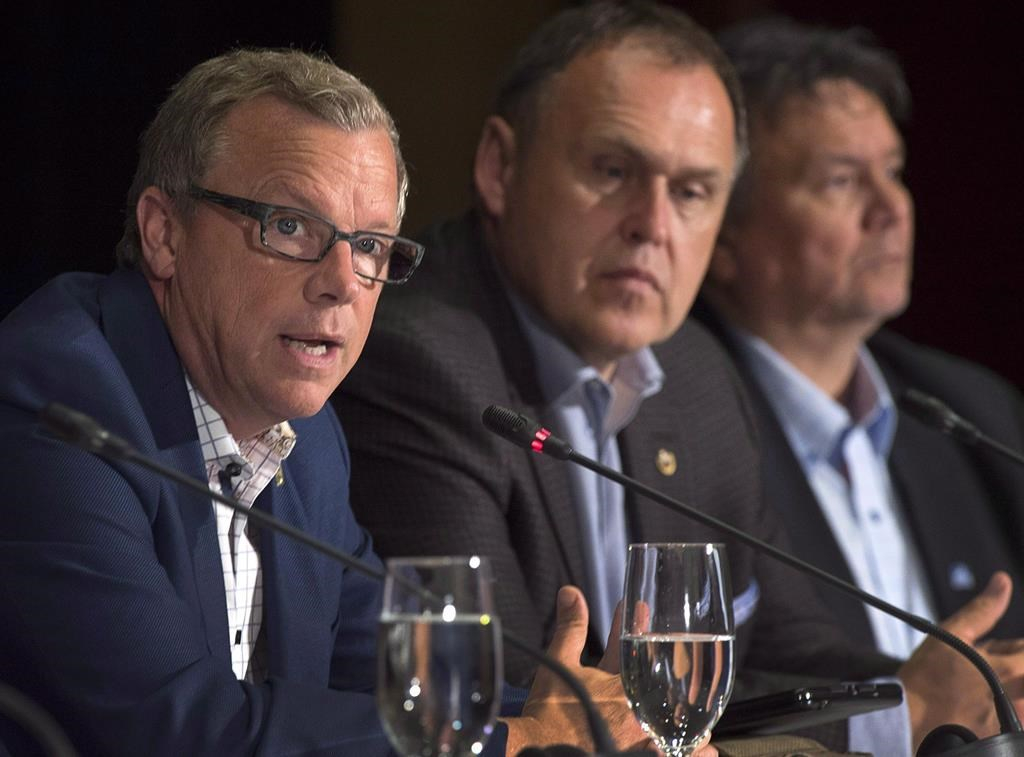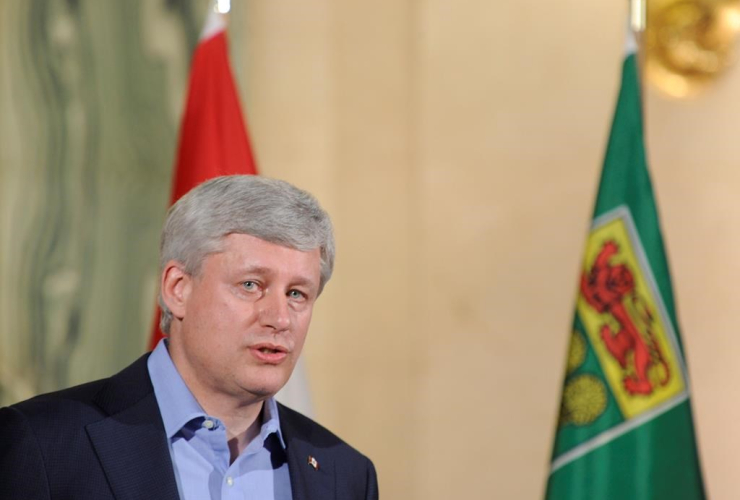ATLANTA — From the Liberal governments of eastern Canada, it's consternation. From a western Conservative premier, however, the prospect of Canada reaching a historic trade deal elicits celebration.
A political and regional split over the Trans-Pacific Partnership appeared Thursday at the Atlanta conference centre that's hosting the 12-country negotiations.
There were duelling letters released: one from Saskatchewan Premier Brad Wall that was very supportive of the TPP, and one from the Ontario government sounding the alarm bell.
Cabinet ministers from Liberal governments in Ontario, Quebec, Nova Scotia and New Brunswick were in Atlanta to press federal negotiators against opening the dairy sector to foreign competition.
The Harper government will have to manage the political reaction in some of those places should it reach a deal less than three weeks before election day, during a hard-fought campaign.
Quebec's economic development minister says it's not his government's style to tell people how they should vote federally, and he can't see it interfering in the federal election as a result of TPP.
But Jacques Daoust is among those eastern-province ministers in Atlanta pushing against any relaxation of dairy protections.
"I don't know too many jurisdictions in the world that don't assist their agriculture sector — because the first responsibility of a government is to feed its population," Daoust said in an interview.
"To say, 'No, we're feeding our people from another jurisdiction' — that would be a little surprising."
Ontario's Liberal government has been more vocal against the federal Tories in the campaign. It's now released a letter where two of its ministers expressed alarm over the potential impact of TPP. Brad Duguid and Jeff Leal said the province was "extremely concerned" by signals being sent about the auto industry.
Across the continent and on the other end of the political spectrum, Saskatchewan Premier Brad Wall released an enthusiastic note about the potential deal.
"Saskatchewan strongly supports Canada's participation," Wall wrote in a Facebook post.
"The proposed TPP represents unprecedented market access for our exports in a region that holds current and great potential demand for products that Saskatchewan offers at a world leading scale."
Among the biggest winners of the deal would be the cattle and canola industries, which stand to make big gains in exports should the anticipated reduction in Japanese tariffs materialize.
The federal government has also pointed to the potential positives in other parts of the country — such as robotics, aeronautics and a pork industry that touts 92,000 direct and indirect jobs and is heavily concentrated in Ontario and Quebec.
But the politicians in that region are talking about dairy farmers and auto workers.
Dairy's supply-managed system is heavily shielded from foreign competition. The system provides stability for Canadian farmers, but reduces selection and raises prices at the grocery store.
Canadian producers have a lock on 90 per cent of the domestic milk-and-cheese market. The rest comes from abroad, with the recent Canada-EU deal setting aside four per cent for European goods. Sources say the U.S. pushed for 10 per cent additional access, which the Canadian government refused.
The dairy advocates' position is that no new products be allowed in. It's New Brunswick's position too, although that province's agriculture minister predicted that won't happen.
"I think what's going to happen is they intend to make some sort of concessions," Rick Doucet said.
"That's up to them."
The feds have promised to maintain the supply-management system but aren't ruling out more imports. That was underscored this week when the outgoing agriculture minister, Gerry Ritz, hinted at possible compensation for farmers.
Even that compensation suggestion prompted provincial angst.
Daoust said compensation would be an admission of failure at the negotiating table. "I don't want compensation — I want protection," he said. Doucet put it another way: "Farmers want to work. They want to make a living. They don't want to receive a welfare check."
The lead Canadian minister at the negotiations has met with the provincial ministers. They described a polite tone in their chats with International Trade Minister Ed Fast. They said he solicited their recommendations.
"They're supportive," Doucet said of the federal side.
But said the provinces left without hard insights into bargaining developments. The talks have been extended another day into Friday, with some countries predicting a deal could get done in Atlanta.
It would have to be ratified in national parliaments later, including Canada's after the election.
Alexander Panetta, The Canadian Press




Comments